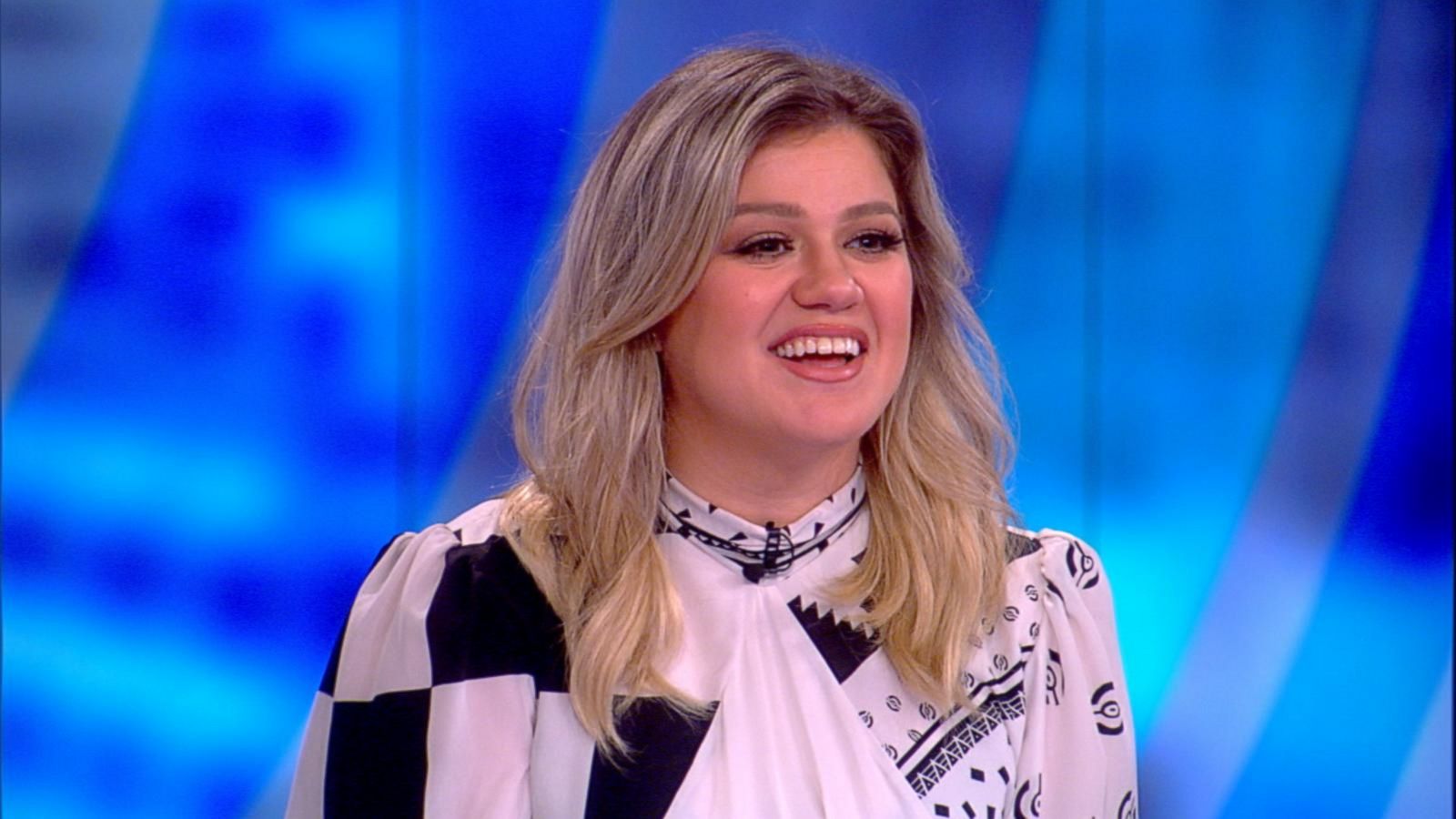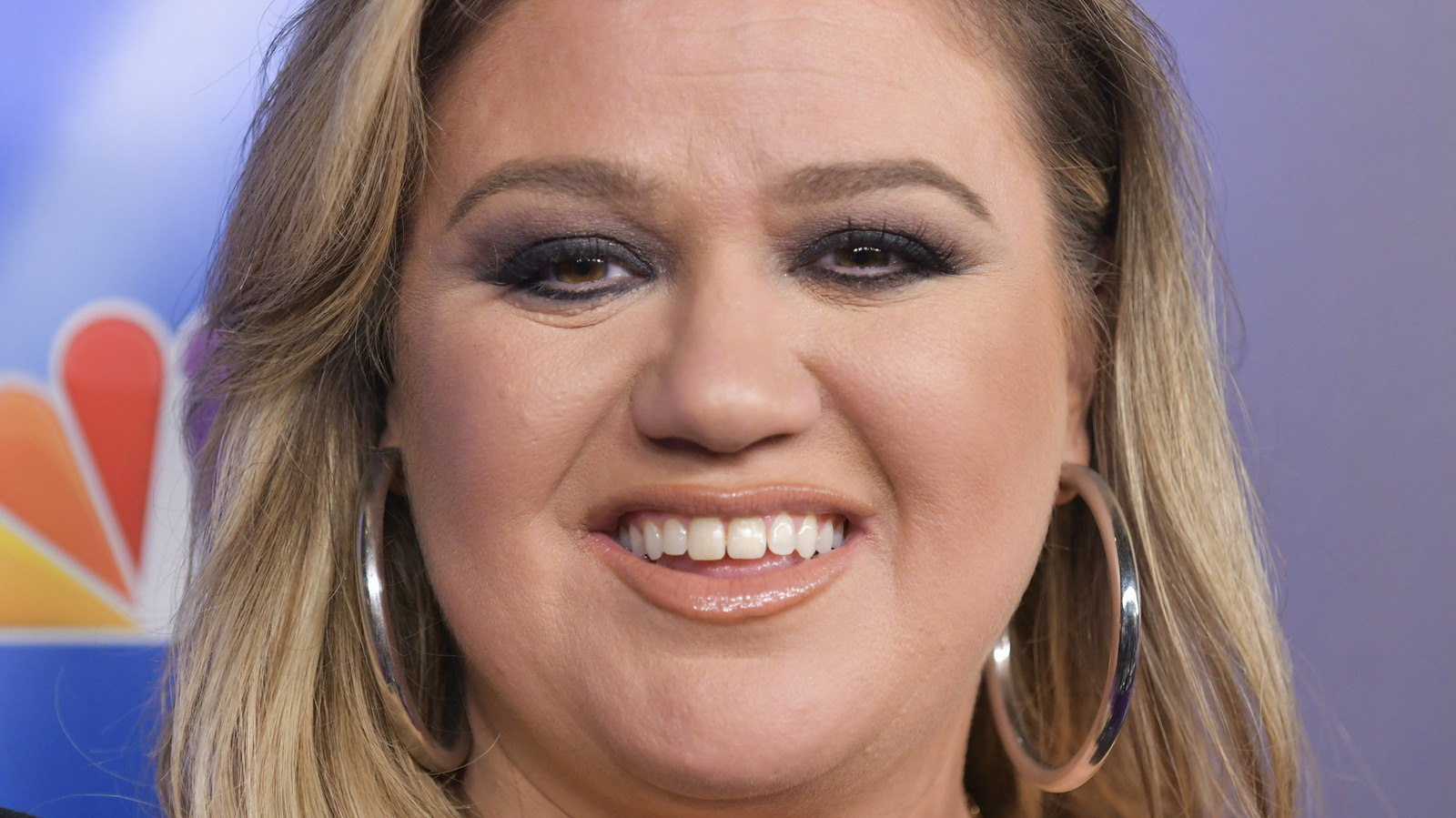Kelly Clarkson's Politics: A Closer Look & Fan Backlash
Is it possible for a pop star's political leanings to significantly impact their career trajectory? The intertwining of Kelly Clarkson's public persona with her political views highlights the delicate balance celebrities navigate when they express their beliefs, as the potential for both adulation and alienation looms large.
The music industry, particularly in the realm of pop, thrives on a carefully constructed image. Artists often cultivate a specific persona that resonates with their fanbase, fostering a sense of connection and loyalty. However, when political opinions enter the equation, the waters become considerably murkier. As Clarkson herself has discovered, there's a risk involved. Her vocalization of political views, however well-intentioned, could alienate segments of her audience. This is especially true given the current climate, where political divisions run deep, and opinions are often fiercely guarded.
Beyond the immediate consequences of expressing political beliefs, there's the long-term impact on an artist's relevance. In the fast-paced world of pop music, staying at the forefront requires constant reinvention and adaptation. Clarkson's willingness to engage in political discourse, while perhaps admirable, may not always align with the desires of her audience. Furthermore, there's the risk of being typecast or pigeonholed, limiting creative opportunities and potentially hindering career growth. In this context, the challenge for Clarkson, and indeed for any artist who chooses to speak their mind, is to maintain their artistic integrity while navigating the complex landscape of public opinion.
Kelly Clarkson's journey through the music industry and into the realm of television offers a compelling case study in celebrity and its intersection with politics. Born Kelly Brianne Clarkson on April 24, 1982, she first captured the world's attention as the inaugural winner of "American Idol" in 2002. This victory catapulted her into the spotlight, launching a career that would see her become a multi-platinum-selling recording artist, songwriter, and television personality. Clarkson's path, however, is not just defined by chart-topping hits and successful television ventures; it is also marked by her increasingly visible engagement with political matters. This is a story of an artist evolving, navigating the complexities of fame, and the ever-present challenge of balancing personal beliefs with professional obligations.
Clarkson's early career was marked by a reluctance to publicly express her political opinions, a stance perhaps understandable given the potential pitfalls for a rising star. However, over time, she has become more open about her views, performing at President Obamas inauguration and publicly supporting candidates. This shift reflects a growing trend of celebrities using their platforms to advocate for causes they believe in. While this approach can be empowering, it also carries the potential for controversy, as demonstrated by the responses she received from fans following some of her political statements. The reactions highlight the importance of carefully considering the implications of public statements in the age of social media, where opinions are shared instantly, and scrutiny is relentless.
This shift raises questions about the role of celebrities in shaping public opinion and the potential influence they wield. Clarkson's openness has sparked discussions about her influence in modern cultural discourse. The responses highlight the importance of carefully considering the implications of public statements in the age of social media, where opinions are shared instantly, and scrutiny is relentless.
| Category | Details |
|---|---|
| Full Name | Kelly Brianne Clarkson |
| Born | April 24, 1982 |
| Birthplace | Fort Worth, Texas, USA |
| Nationality | American |
| Religion | Southern Baptist (raised) |
| Marital Status | Divorced (Brandon Blackstock) |
| Children | 2 (River Rose Blackstock, Remington Alexander Blackstock) |
| Occupation | Singer, Songwriter, Television Personality, Talk Show Host |
| Known For | Winning "American Idol," Multi-platinum-selling artist, "The Kelly Clarkson Show" |
| Political Stance | Registered Republican, but has voted for Democrats; views have become more liberal over time |
| Associated Acts | Various collaborators throughout her music career |
| Website Reference | Kelly Clarkson Official Website |
The intersection of celebrity and politics is a recurring theme in contemporary culture. It's a realm where artists' political views can become deeply intertwined with the perception of their work. As such, what an artist chooses to say, or chooses not to say, can have far-reaching implications. It can affect whether their current fanbase remains loyal, and ultimately, whether they stay relevant in the pop music landscape.
In recent years, Clarkson's political statements have ignited discussions on celebrity influence and the power of public opinion. For Clarkson, her political journey has involved everything from performing at President Obama's inauguration to publicly supporting candidates like Ron Paul. This active involvement has brought her under the spotlight, with fans and critics alike scrutinizing her choices. The reactions of her supporters and detractors are a demonstration of the complexities that come with celebrity activism.
Kelly Clarkson's decision to express her political views hasn't always been met with universal approval. For instance, when she voiced support for Ron Paul, she faced criticism from some of her fans. The incident illustrates the tightrope celebrities walk when they share their political beliefs. The Dixie Chicks, a country music group, faced severe backlash after singer Natalie Maines expressed her political views years ago, highlighting the potential consequences of celebrity outspokenness. Clarkson has been mindful of this, as evidenced by her interactions with fans and her reflections on the topic.
The question of celebrity influence on shaping public opinion is a complex one. Celebrities have a platform that can reach millions, making their statements potentially influential. However, whether that influence is always positive, or whether it always aligns with the artist's intentions, is a matter of debate. The case of Kelly Clarkson illustrates the inherent challenges of navigating the political landscape. Her openness has opened up discussions about the right to free speech and the responsibility of public figures. The conversation surrounding Clarkson has involved discussions about the implications of celebrity influence in modern cultural discourse.
Her musical journey has been marked by significant milestones, from her 2002 breakthrough on "American Idol" to her numerous chart-topping hits. This success has solidified her status as a pop icon, but her recent ventures into television, particularly with "The Kelly Clarkson Show," have broadened her reach and showcased her versatility. She has learned from her experiences over the years; for example, in her talk show, she has created a space for guests, illustrating her ability to adapt and connect with her audience.
The dynamics of the music industry, where artistry and public persona are intricately linked, have always posed challenges for artists. Clarkson's decision to speak up about her political views highlights the delicate balance between authenticity and public perception. While it's impossible to predict the long-term impacts of her choices, Clarkson's career, and indeed her public image, serves as a case study for other artists navigating the complex relationship between celebrity and politics.
Clarkson's Christian faith has remained an important part of her life, and she was raised a Southern Baptist. This aspect of her background adds another layer to the way she is perceived, with her supporters and detractors likely holding a range of views on how faith and political expression interact. The context of her faith is another factor that influences her public image and her interactions with the world.
Kelly Clarkson's career trajectory has been quite a ride, especially since her start in 2002, when she won the inaugural season of American Idol. Beyond her musical achievements and her hosting roles, there's a growing interest in her political views and her influence in modern cultural discourse. It's a testament to the ever-changing landscape of celebrity, where the lines between public persona and private beliefs are increasingly blurred.
The "Kellyoke" segment of "The Kelly Clarkson Show," where she covers other artists' songs, has become a staple. On the other hand, Clarkson's willingness to discuss serious issues on her show, as she did with Hillary Clinton on a recent episode, showcases her ability to engage with important topics. Her work has led to questions about the influence she yields in modern cultural discourse.
When the country singer Carrie Underwood accepted Donald Trump's invitation to perform at his inauguration, it caused a stir, and it inevitably sparked a debate over the intersection of politics and art. Likewise, the reactions to Clarksons statements and actions prove the complexity of political expression for public figures. This reality highlights the potential for backlash and the need for celebrities to carefully consider the implications of their endorsements and public statements.
It's worth mentioning that there is no documented feud between Kelly Clarkson and Carrie Underwood, but fans still have strong opinions amid the country singers decision to perform at Trump's inauguration. The incident served as a reminder of the high stakes involved in celebrity endorsements, a reminder of the power of public opinion and how quickly it can shift, underscoring the need for celebrities to be prepared for scrutiny and criticism.
The discussion surrounding Clarkson also involves broader reflections on celebrity influence. The conversations sparked by her political statements highlight the power of celebrities to shape public opinion. The choices made by public figures, such as when Kelly Clarkson supports a political candidate, can lead to serious discussions and further inquiries.


